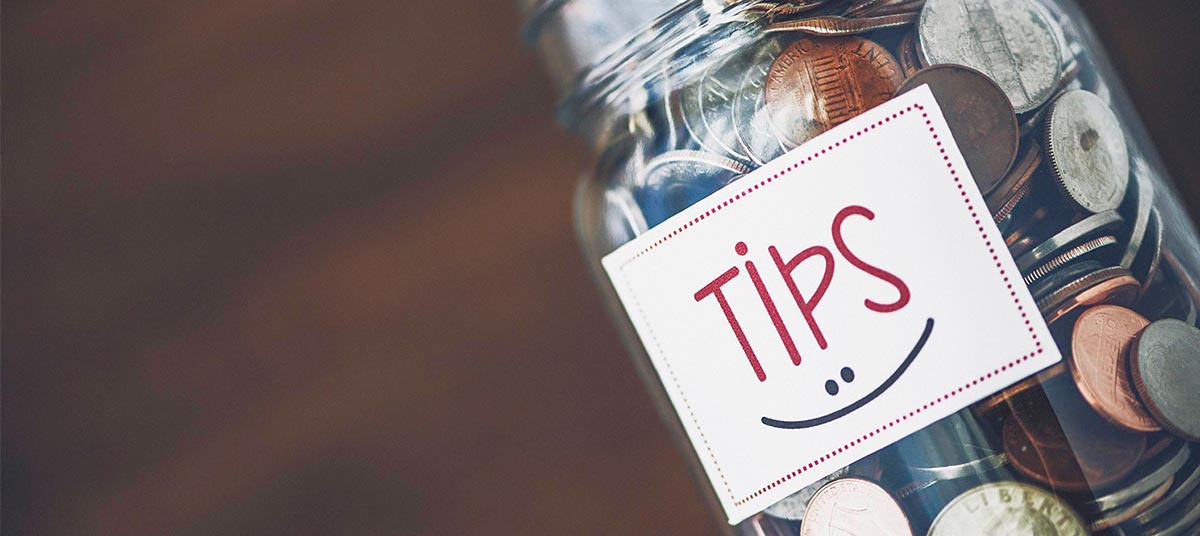Blog
We keep you up-to-date on the latest tax changes and news in the industry.
Tax Exemption Update: Occupations Now Eligible for Tip Deductions

On September 2, 2025, the Treasury Department unveiled a preliminary list enumerating 68 professions that now qualify for the newly introduced "no tax on tips" deduction. This pivotal provision forms part of the expansive "One Big Beautiful Bill Act"—enacted on July 4, 2025—applicable to federal income taxes for the tax years 2025 through 2028. This development is poised to bring relief to numerous workers in service-oriented fields, enhancing their take-home pay by reducing taxable income.

Significantly, this deduction permits a maximum of $25,000 in qualifying tip income per individual each year. It takes the form of a "below-the-line" deduction, which does not contribute to adjusted gross income (AGI), enabling taxpayers who utilize the standard deduction to benefit from this provision.
Highlighted below is the draft list of eligible occupations as categorized by the Treasury Department:
Beverage & Food Service:
- Bartenders
- Wait staff
- Food servers, non-restaurant
- Dining room and cafeteria attendants, and bartender helpers
- Chefs and cooks
- Food preparation workers
- Fast food and counter workers
- Dishwashers
- Host staff at restaurants, lounges, and coffee shops
- Bakers
Entertainment and Events:
- Gambling dealers
- Gambling change persons and booth cashiers
- Gambling cage workers
- Gambling and sports book writers and runners
- Dancers
- Musicians and singers
- Disc jockeys (except radio)
- Entertainers and performers
- Digital content creators
- Ushers, lobby attendants, and ticket takers
- Locker room, coatroom, and dressing room attendants
Hospitality and Guest Services:
- Baggage porters and bellhops
- Concierges
- Hotel, motel, and resort desk clerks
- Maids and housekeeping cleaners
Home Services:
- Home maintenance and repair workers
- Home landscaping and groundskeeping workers
- Home electricians
- Home plumbers
- Home heating/air conditioning mechanics and installers
- Home appliance installers and repairers
- Home cleaning service workers
- Locksmiths
- Roadside assistance workers
Personal Services:
- Personal care and service workers
- Private event planners
- Private event and portrait photographers
- Private event videographers
- Event officiants
- Pet caretakers
- Tutors
- Nannies and babysitters

Personal Appearance and Wellness:
- Skincare specialists
- Massage therapists
- Barbers, hairdressers, hairstylists, and cosmetologists
- Shampooers
- Manicurists and pedicurists
- Eyebrow threading and waxing technicians
- Makeup artists
- Exercise trainers and group fitness instructors
- Tattoo artists and piercers
- Tailors
- Shoe and leather workers and repairers
Recreation and Instruction:
- Golf caddies
- Self-enrichment teachers
- Recreational and tour pilots
- Tour guides and escorts
- Travel guides
- Sports and recreation instructors
Transportation and Delivery:
- Parking and valet attendants
- Taxi and rideshare drivers and chauffeurs
- Shuttle drivers
- Goods delivery people
- Personal vehicle and equipment cleaners
- Private and charter bus drivers
- Water taxi operators and charter boat workers
- Rickshaw, pedicab, and carriage drivers
- Home movers
The intricacies of the OBBB tip exclusion mandate that the deduction is only temporary, spanning tax years 2025 to 2028, and is specifically tailored for qualified tipped workers. It requires compliance with several eligibility prerequisites:
- Qualified tipped worker: Must have consistently earned tips in their occupation prior to 2025, as outlined by the Treasury's draft list.
- Qualified tips: Tips must be willingly given by customers, encompassing cash, credit card tips, and those dispersed through a tip-sharing arrangement. Mandatory service fees are excluded.
- Proper tip reporting: Tips must be correctly documented with IRS using Form W-2 for employees or Form 1099 for independent contractors.
- Joint filing for married couples: Married couples must submit a joint return to benefit from this deduction.
- Provision of SSN: Claimants must include their Social Security Number on their tax returns.
Limitations: While the deduction can reach up to $25,000 annually, it phases out for higher-income earners:
- Single filers: The deduction decreases with a MAGI above $150,000.
- Married filing jointly: The deduction diminishes for MAGI exceeding $300,000.
Crucial Considerations:
- Exclusion from payroll taxes: Although this deduction impacts one's federal income tax, tip income remains liable for Social Security, Medicare, or self-employment taxes for contractors.
- Temporary provision: The tip deduction is set to lapse post-December 31, 2028.
- Not a tax-free benefit: As a deduction (not an exemption), all tip income must be declared before applying the deduction benefit.
- Impact on state taxes: The local tax implications vary based on specific state laws.

As always, knowing which occupations qualify for these tax advantages is paramount for employees and business owners aiming to optimize their financial strategies. Staying abreast of eligibility criteria, coupled with professional tax advice, can significantly aid in navigating these intricate tax structures effectively. Reach out with any questions or for further assistance—it’s our mission at CPA Consulting Services to demystify the tax process, helping clients in and around Connecticut make informed decisions. Let’s tackle the evolving tax landscape together!
Contact our office for personalized guidance and support.
Want tax & accounting tips and insights?
Sign up for our newsletter.